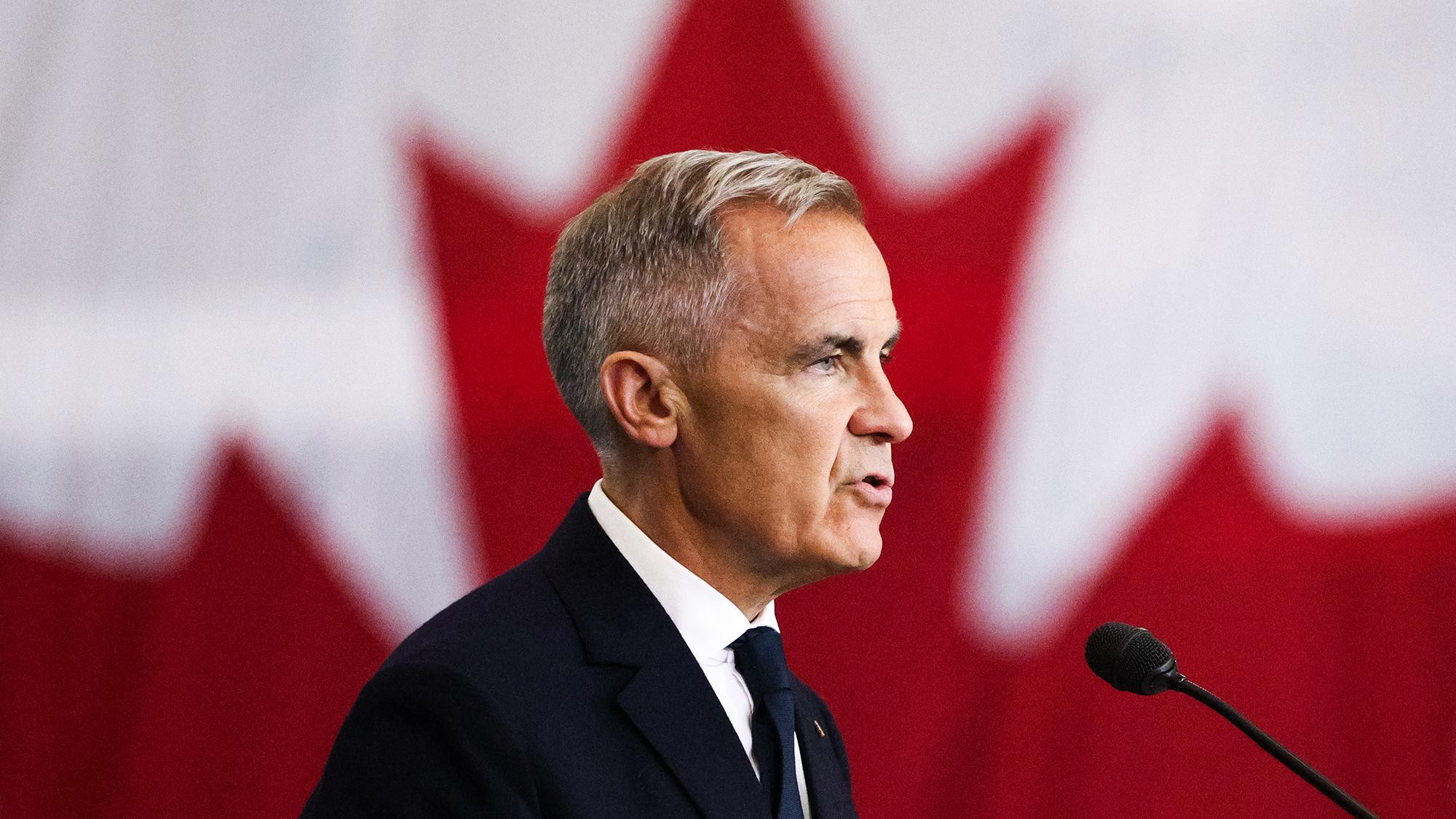Politics of Mark Carney: SNP and Labour have cause to shudder
With his warning to the Scots and his comments on Labour's bank reforms, has the Governor gone too far?

A free daily email with the biggest news stories of the day – and the best features from TheWeek.com
You are now subscribed
Your newsletter sign-up was successful
IS MARK CARNEY, Governor of the Bank of England, getting too political? It's a question raised, not for the first time, after yesterday's intervention over sterling appeared to put the skids under Alex Salmond's Yes campaign for Scottish independence. Carney told an audience of business figures after meeting Salmond at Bute House that if Scotland wanted a durable, successful currency union with the Bank of England then it will require "some ceding of national sovereignty" by Scotland. The Scotsman today reports a Scottish Government spokesman accepting Carney's point that there would have to be a sharing of risk and fiscal stability across Scotland and what remained of the UK. "Any independent government looks at pooling sovereignty on a range of fronts," the spokesman told the paper. "This is done when it is in the country's interests to pool sovereignty, and rules and structures are put in place. We would still be responsible for our own taxation." Which raises the question: what is the point of Scottish independence and the Great Scottish Referendum later this year? As James Kirkup, political correspondent of the Daily Telegraph, put it in his ‘evening briefing' yesterday, Carney has "lobbed a hand grenade into the Scottish independence debate". Kirkup's colleague Ben Brogan added this morning: "Mr Carney delivered an unpalatable home truth to Mr Salmond: you can have independence, or the pound, but not both; and if Scotland were to join a currency union with Britain, it would have to hand over more fiscal powers than countries in the eurozone currently have to. "The intervention clearly represents a setback for Mr Salmond. As our leader points out, ‘Independence would not only leave the Scots in a materially precarious situation but, ironically, less free than before'." But the far more significant message that has emerged from Carney's intervention - at least for those south of the border who won't get a say in the referendum - is the extent to which he is prepared to engage in highly controversial political issues, and how that may read across to his relations with Ed Balls, Labour's shadow chancellor, and George Osborne, the Tory Chancellor who appointed him. As Kirkup put it yesterday, "Despite his eloquent protestations to the contrary, he [Carney] is turning out to be a rather political governor." Indeed, this is not the first time Carney has tip-toed into the political arena. Soon after arriving at the Bank from Canada last year, Carney and the Monetary Policy Committee (MPC) issued forward advice to the City that serious consideration would be given to raising interest rates when unemployment fell to seven per cent. Last week unemployment fell to 7.1 per cent - threatening a rise in interest rates that could choke off all those home-buyers boosting the economy through mortgages and purchases of household goods to fill their new homes and, in one fell swoop, scupper Osborne's plans. But Carney immediately indicated that there was no immediate increase in interest rates in prospect. That got a big sigh of relief from the Treasury. But was it an economic decision, or a political one? And that's not all. When the news broke earlier this month that Ed Miliband wanted to impose a limit on the market share of individual banks, Carney was asked for his view by members of the Commons Treasury select committee. "Just breaking up an institution doesn't necessarily create or enable a more intensive competitive structure," the Carney responded. A cap on market share, he said, would "not result in substantial improvement to competition". As one of the BBC political team, Chris Mason, commented at the time, Carney also made it clear that he didn't favour Miliband's other big idea – a cap on banker's bonuses.
When shadow business secretary Chuka Umunna was asked later about Carney's remarks, he responded coolly: "I actually had an exchange in July 2010 with Mark Carney's predecessor, then Sir Mervyn King. He made it very clear to me that it is not a good thing for governors of the Bank of England to be involved in political matters."
Labour's shadow Treasury team will be watching like hawks to see if the Governor takes decisions in the run-up to the 2015 general election that can be construed as "political" to help Osborne win re-election for the Conservatives. Carney and his team might deny that anything so crude could possibly happen at the Bank of England, but don't underestimate the room for conflict between Chancellors and the Governor. We now know, thanks to Damian McBride's memoirs, that back in 2004 when Gordon Brown was Chancellor he issued a four-letter tirade against Mervyn King (albeit over the CIA spying on us rather than the economy). McBride recalls how Brown told King he was talking "f***ing bull****" when he said he had a duty to speak out and that it was his "f***ing ego dictating his position, not his duty to the country". You can expect Ed Balls to say something similar if there is any suggestion of Carney acting politically from his perch in Threadneedle Street.
The Week
Escape your echo chamber. Get the facts behind the news, plus analysis from multiple perspectives.

Sign up for The Week's Free Newsletters
From our morning news briefing to a weekly Good News Newsletter, get the best of The Week delivered directly to your inbox.
From our morning news briefing to a weekly Good News Newsletter, get the best of The Week delivered directly to your inbox.
A free daily email with the biggest news stories of the day – and the best features from TheWeek.com
-
 Political cartoons for February 19
Political cartoons for February 19Cartoons Thursday’s political cartoons include a suspicious package, a piece of the cake, and more
-
 The Gallivant: style and charm steps from Camber Sands
The Gallivant: style and charm steps from Camber SandsThe Week Recommends Nestled behind the dunes, this luxury hotel is a great place to hunker down and get cosy
-
 The President’s Cake: ‘sweet tragedy’ about a little girl on a baking mission in Iraq
The President’s Cake: ‘sweet tragedy’ about a little girl on a baking mission in IraqThe Week Recommends Charming debut from Hasan Hadi is filled with ‘vivid characters’
-
 Local elections 2026: where are they and who is expected to win?
Local elections 2026: where are they and who is expected to win?The Explainer Labour is braced for heavy losses and U-turn on postponing some council elections hasn’t helped the party’s prospects
-
 How corrupt is the UK?
How corrupt is the UK?The Explainer Decline in standards ‘risks becoming a defining feature of our political culture’ as Britain falls to lowest ever score on global index
-
 Does standing up to Trump help world leaders at home?
Does standing up to Trump help world leaders at home?Today’s Big Question Mark Carney’s approval ratings have ‘soared to new highs’ following his Davos speech but other world leaders may not benefit in the same way
-
 The high street: Britain’s next political battleground?
The high street: Britain’s next political battleground?In the Spotlight Mass closure of shops and influx of organised crime are fuelling voter anger, and offer an opening for Reform UK
-
 Is a Reform-Tory pact becoming more likely?
Is a Reform-Tory pact becoming more likely?Today’s Big Question Nigel Farage’s party is ahead in the polls but still falls well short of a Commons majority, while Conservatives are still losing MPs to Reform
-
 Taking the low road: why the SNP is still standing strong
Taking the low road: why the SNP is still standing strongTalking Point Party is on track for a fifth consecutive victory in May’s Holyrood election, despite controversies and plummeting support
-
 What difference will the 'historic' UK-Germany treaty make?
What difference will the 'historic' UK-Germany treaty make?Today's Big Question Europe's two biggest economies sign first treaty since WWII, underscoring 'triangle alliance' with France amid growing Russian threat and US distance
-
 Trump set to hit Canada with 35% tariffs
Trump set to hit Canada with 35% tariffsSpeed Read The president accused Canadian Prime Minister Mark Carney of failing to stop the cross-border flow of fentanyl